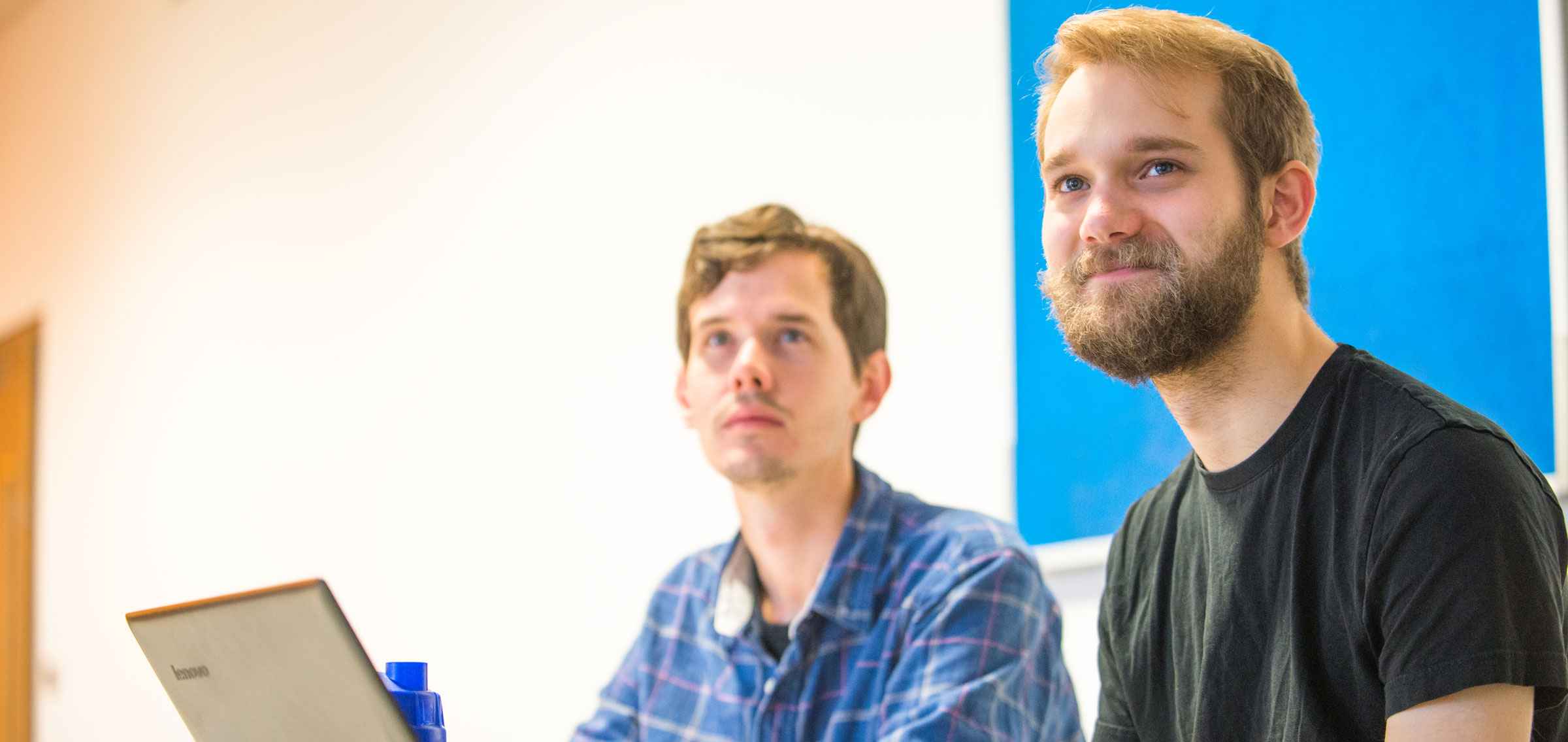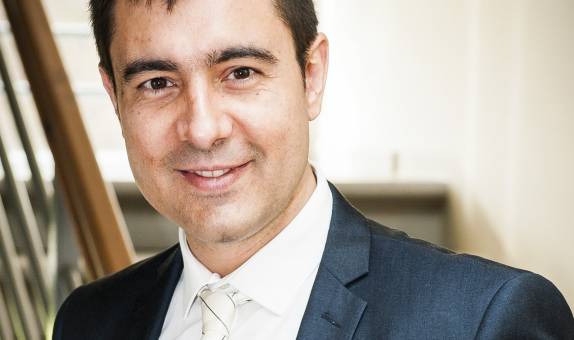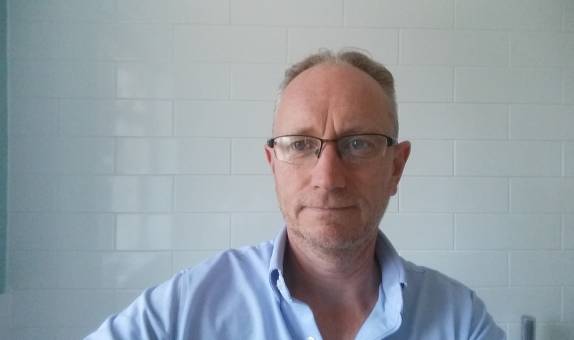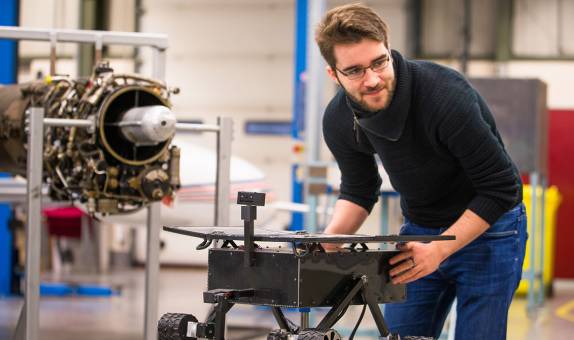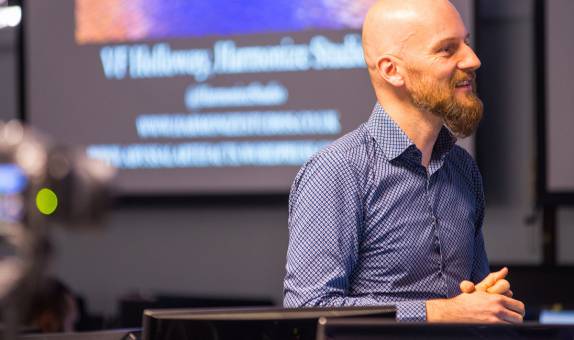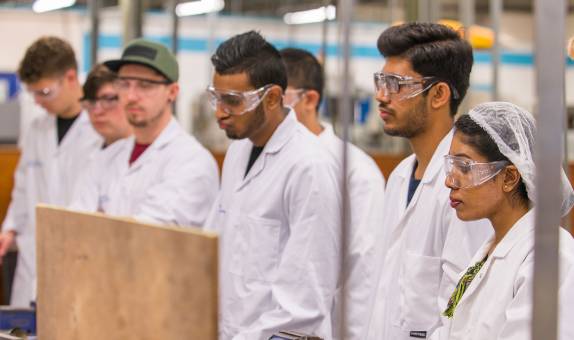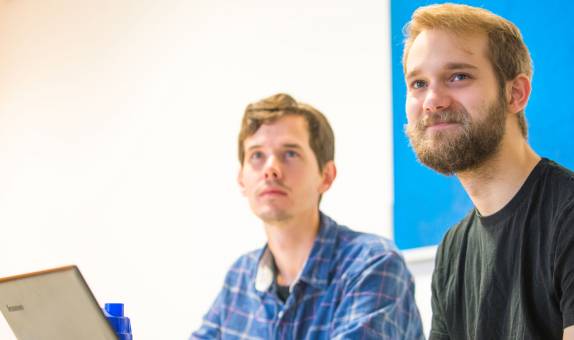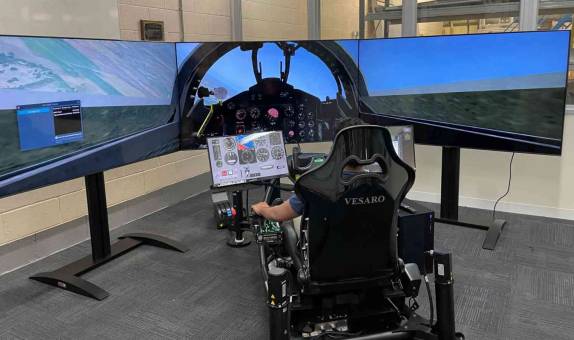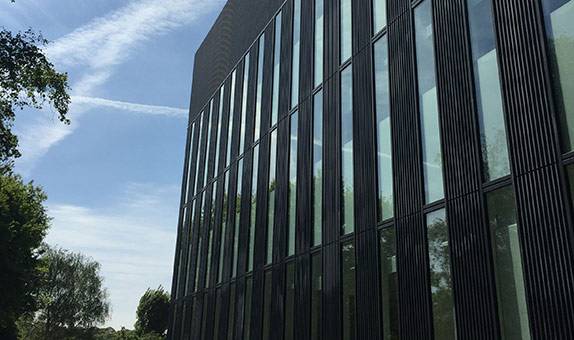School of Built Environment and Geography
The School of Built Environment and Geography is made up of two departments:
Tomorrow's Engineers Code
 The Tomorrow's Engineers Code is a commitment to work toward common goals, or pledges, to increase the diversity and number of young people entering engineering careers.
The Tomorrow's Engineers Code is a commitment to work toward common goals, or pledges, to increase the diversity and number of young people entering engineering careers.
Department of Civil Engineering, Surveying and Construction Management
The department offers undergraduate (BEng Civil Engineering) and postgraduate programmes (MSc Structural Design and Construction Management - with a Sustainability pathway). Programmes are fully-accredited by the Joint Board of Moderators (JBM) (under licence from the Engineering Council). This consists of the Institution of Civil Engineers (ICE), the Institution of Structural Engineers (IStructE), the Institution of Highways and Transportation (IHT), the Institute of Highway Incorporated Engineers (IHIE) and The Permanent Way Institution (PWI).
We also offer a comprehensive range of undergraduate and postgraduate degree programmes relevant to the built environment.
Our well-established undergraduate courses in the department:
Construction Project Management BSc (Hons) focuses on the construction processes as well as management, economics, finance and people management. It is currently accredited by the Chartered Institute of Building (CIOB). The Building Surveying BSc (Hons) and Quantity Surveying BSc (Hons) programmes are accredited by the Royal Institution of Chartered Surveyors (RICS) and Chartered Institute of Building (CIOB).
Our postgraduate courses:
Management in Construction MSc is pending accreditation by the Chartered Institute of Building (CIOB). Building Surveying and Quantity Surveying MSc programmes are fully accredited by the Royal Institution of Chartered Surveyors (RICS) and pending accreditation by the Chartered Institute of Building (CIOB).
Degree apprenticeship programmes:
For our civil and infrastructure engineering, building surveying and quantity surveying consultancy courses there is a degree apprenticeship programme that enables you to carry out your degree whilst in full-time employment. Find out more about degree apprenticeships at Kingston University >
About our programmes
Our programmes are designed with your aspirations, needs and abilities in mind. They develop specialist skills, deepen your understanding and offer new insights and perspectives to equip you for a professional career ahead.
Academic staff in the department are bonded in an interdisciplinary team of civil and structural engineers, material scientists, geologists, hydrologists, construction managers, building and quantity surveyors with professional practice and applied research backgrounds. Many are nationally and internationally-recognised leaders in their areas of specialism and are frequently invited to undertake high-profile external research and consultancy work.
Having developed our courses with the working world in mind, we offer hands-on student experiences. These include testing in our exemplary laboratory facilities in structures, materials, concrete, geotechnics and hydraulics that are used for teaching and research. Knowledge is also gained from field trips for both undergraduates and postgraduates, site visits and industrial placements, employability support via our strong partnerships with industry, professional institutions and learned societies.
Our teaching is engaging and practice-focused and supported by site visits and invited guest lecturers by our industrial liaisons and strong alumni network. Our approach to assessment is project-driven and equips students with a range of competencies and transferrable skills thus boosting their employability prospects.
Department of Geography, Geology and the Environment
Geography-related environmental subjects have been taught at Kingston for over 70 years. They draw upon a wide range of research expertise, from human and physical geographers, GIS specialists, geologists, geochemists, hazard specialists and environmental scientists.
We have invested substantially in the development of laboratories for teaching and research into subjects such as environmental monitoring, geology, geochemistry, mapping / GIS / computing facilities, and specialist instrumentation laboratories (e.g. nuclear metrology; laser Raman spectroscopy; 3D mapping).
Our core course offer focuses on geography, human geography and environmental science with an optional hazard pathway. All our courses are accredited by their associated professional body. Our philosophy is to bring active research into the classroom and provide a learning experience based on real-world scenarios and problem-based techniques: promoting employability at all levels.
As a result of this we actively promote real-world learning. Fieldwork is a vital component of all our courses; students are encouraged to gain hands-on experience by carrying out domestic and international fieldwork, in places such as Cornwall, Southern England, Scotland, Spain, Malta, Tenerife and South Africa.
